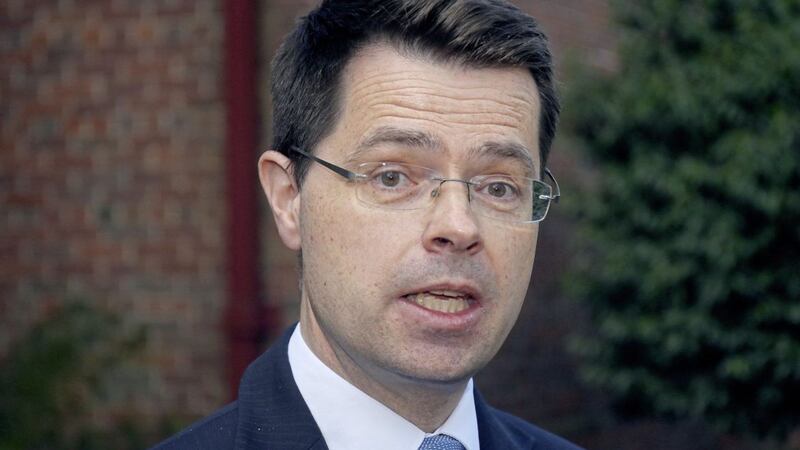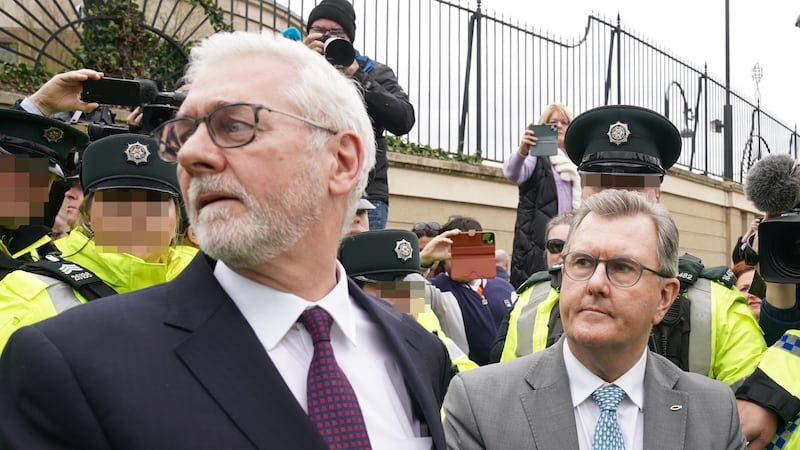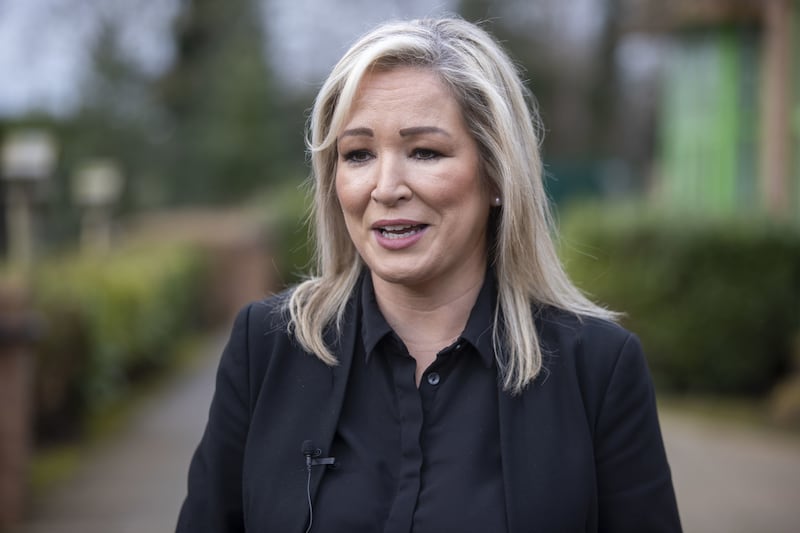The new deadline for forming a powersharing government at Stormont is June 29.
Secretary of State James Brokenshire has introduced legislation at Westminster that will give Stormont's rowing parties a three-week window to strike a deal after the General Election.
The end of June date is now the fourth deadline in the deadlocked process, with the previous three having fallen by the wayside amid ongoing stalemate between local political leaders.
An agreement between the two main parties - Sinn Féin and the DUP - continues to prove elusive.
"Since the Assembly election on March 2 our focus has been on re-establishing inclusive, devolved government," said Mr Brokenshire.
"The forthcoming UK General Election does not change that. This Bill will therefore enable an Executive to be formed in the coming days should an agreement be reached.
"However, if an agreement is not possible before the General Election, it is right that we provide flexibility for an incoming Government to act in the best interests of Northern Ireland and the space for the parties to conclude a deal.
"This Bill gives the parties the legal authority to convene the Assembly, appoint ministers and get on with the resumption of devolved government at any point up to 29 June.
"This is what the people of Northern Ireland voted for on March 2 and should remain the focus in the weeks ahead."
The Briitsh government's third deadline of "early May" was torpedoed by the calling of the snap General Election, with all sides at Stormont admitting the chances of compromise were much reduced amid an adversarial campaign for votes.
Discussions are due to continue in the days ahead, but the prospect of a breakthrough is slim to none.
Northern Ireland has been without a devolved government for more than seven weeks, with a senior civil servant currently in charge of public spending.
The Bill tabled by Mr Brokenshire in Westminster will also enable the collection of household rates payments, funds that run local council services.
Politicians had not set the regional rate prior to devolution crashing in January over a row about a botched green energy scheme.
The rate set through Mr Brokenshire's intervention will increase in line with inflation.
Legislation as it stands required that a powersharing executive was formed within three weeks of the March snap Assembly election.
Once that first deadline fell, the British government was always going to have to amend the law to enable a new administration to be formed without resorting to yet another snap election.
The passage of the Bill is a formality. It will be accelerated through its legislative stages to enable rates bills to go out as soon as practicable.
A further snap Assembly poll could still be an option, however, if the parties again fail to reach agreement before the June 29 deadline.
At that point the choice facing Mr Brokenshire will be triggering another election or introducing direct rule from Westminster, unless he opts to set a fifth deadline for negotiations.
Sinn Féin demands for legislative protections for Irish speakers, an end to the region's ban on gay marriage and the implementation of a Northern Ireland-specific bill of rights are among the issues of dispute between it and the DUP.
The republican party has accused the DUP of preventing the formation of a "rights-based" government.
But the DUP has dismissed this, claiming Sinn Féin is focused only on the wish-list of its own supporters, and is failing to appreciate that others want movement on other issues.
The DUP is seeking to secure protections for Ulster Scots speakers and has also pressed for the introduction of a military covenant, a series of policies that define the state's obligations to its armed services.
The UUP, SDLP and Alliance Party are also involved in the protracted negotiations, along with the Briitsh and Dublin governments.
While a civil servant is ensuring that public services are kept running, he is unable to implement major policy-based decisions, as politicians also failed to strike a budget for 2017/18 before devolution crashed.
UUP leader Robin Swann said the latest deadline extension should not be an excuse to let negotiations drift.
"While the Secretary of State has provided some further breathing space to allow an Executive to be formed, no-one should forget that we are rapidly heading towards a real budget crisis," he said.
"Parties cannot be complacent about this window and allow Northern Ireland to endure further weeks of rudderless drifting.
"While some may be keen to now switch full-tilt into election mode, we need to remember that just last month the people of Northern Ireland elected 90 MLAs to make decisions locally, that can't just be brushed off until after 8 June.
"Things like public finances and our health service can't simply be put on ice without consequence. The most vulnerable will quickly begin to feel the pinch if the devolved institutions do not get back on a stable footing and start delivering quickly."







